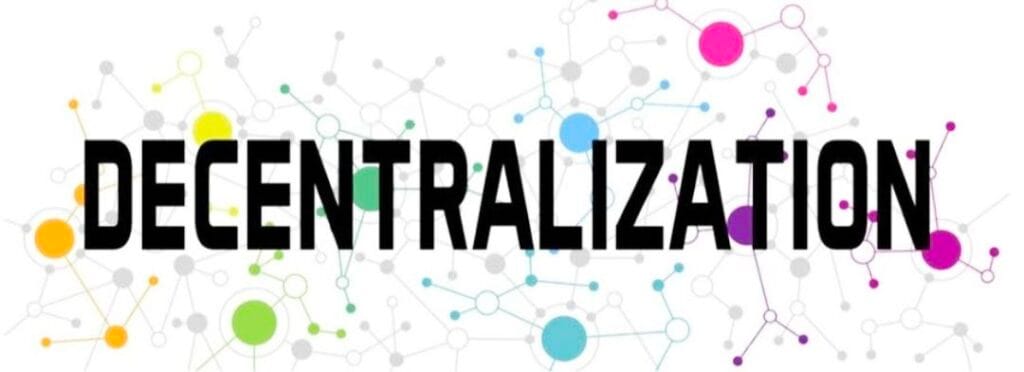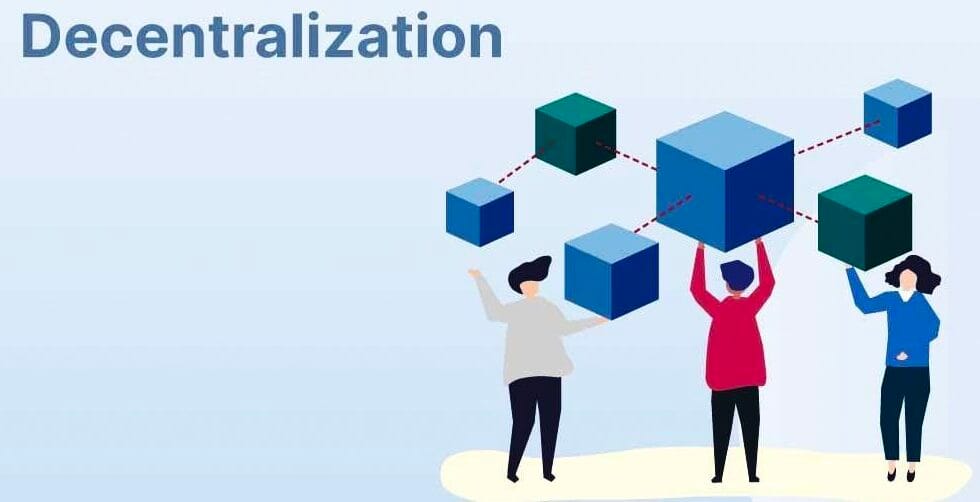Decentralization offers numerous benefits in governance, administration, and service delivery, but it also comes with several challenges and risks. Understanding both the advantages and disadvantages of decentralization can help governments and organizations design policies that optimize its positive impacts while mitigating its downsides.

Advantages of Decentralization
1. Improved Local Governance and Responsiveness
- Proximity to Local Needs: Decentralization allows local governments to better understand and respond to the specific needs, preferences, and concerns of their communities. Local officials are closer to the people and more aware of regional problems, enabling them to craft solutions that are relevant and effective.
- Increased Participation: It encourages public participation in decision-making processes by giving citizens a greater say in local governance. This leads to more democratic processes and enhances political engagement and accountability at the grassroots level.
2. Enhanced Accountability and Transparency
- Accountability of Local Leaders: Since decision-making is closer to the people, local governments and officials are more directly accountable to their constituents. Citizens can monitor the performance of their local governments more easily than national authorities, which can lead to better oversight and reduce corruption.
- Transparency in Resource Allocation: Decentralization often involves local-level resource management, which can make resource allocation more transparent and responsive to local needs.
3. Increased Efficiency and Flexibility
- Tailored Solutions: Local governments have more flexibility to design policies that suit the unique needs of their regions rather than relying on standardized national policies. This often results in quicker and more efficient decision-making.
- Reduced Bureaucracy: Decentralization can streamline processes by cutting through the layers of central bureaucracy, leading to faster responses and reduced delays in service delivery.
4. Improved Service Delivery
- Closer Service Provision: By transferring service delivery responsibilities to local authorities, decentralization ensures that public services like education, healthcare, and infrastructure are more directly managed by those who understand local needs. This often leads to more efficient and effective service provision.
- Adaptability: Decentralized units can more easily adapt services and infrastructure to suit their specific environment, population density, and local preferences.
5. Encouragement of Innovation and Competition
- Experimental Governance: With multiple local governments having the authority to make decisions, there is room for experimentation and innovation in policy approaches. Regions can test new policies or programs, and successful initiatives can be adopted by others.
- Healthy Competition: Decentralization encourages competition between regions or municipalities in delivering better services, fostering improvements in governance and development.
6. Relief for Central Government
- Reduced Burden: Decentralization can relieve central governments of the responsibility for micro-managing local issues. This allows the central government to focus on broader, national concerns like defense, foreign policy, and macroeconomic management.
7. Local Economic Development
- Local Resource Mobilization: Decentralization gives local governments the autonomy to mobilize and allocate resources efficiently, which can spur economic growth at the local level. Local governments can prioritize projects that best support their regional economies, leading to diversified development across the country.
- Private Sector Growth: With local authorities managing their areas, decentralization can also promote public-private partnerships and attract investments, leading to job creation and economic diversification.

Disadvantages of Decentralization
1. Risk of Inequality and Regional Disparities
- Unequal Resource Distribution: One of the most significant drawbacks is the potential for increased inequality among regions. Wealthier or more developed regions may have the resources to thrive under decentralization, while poorer or less developed areas may struggle due to limited financial or institutional capacity.
- Disparities in Service Quality: Regions with more resources or better-trained officials may provide superior public services (like education and healthcare), while poorer regions may lag behind, exacerbating regional disparities.
2. Capacity and Expertise Limitations
- Limited Local Capacity: Decentralization requires local governments to have the capacity to manage resources, make policy decisions, and implement services. In many cases, local governments lack the administrative, technical, or financial expertise needed to fulfill these responsibilities effectively, leading to inefficiencies or poor service delivery.
- Training and Knowledge Gaps: Local officials may not be sufficiently trained to handle the complexities of governance, planning, and public administration, leading to mismanagement or ineffective policies.
3. Coordination Challenges
- Fragmentation of Policies: Decentralization can lead to a lack of coordination between local and central governments, as well as among different regions. This can result in inconsistent policies, overlapping programs, or contradictory initiatives, undermining national development goals.
- Duplication of Efforts: Without proper coordination, decentralization can lead to redundant programs or services between different levels of government, causing resource wastage.
4. Risk of Local Elite Capture and Corruption
- Local Power Dynamics: Decentralization may empower local elites or political bosses who dominate local politics and manipulate policies for their own benefit, rather than for the public good. This can lead to a concentration of power at the local level, fostering nepotism and corruption.
- Weak Accountability Mechanisms: In some cases, local governments may be less transparent and accountable than central governments, especially in areas where citizens lack the capacity or knowledge to hold officials accountable.
5. Fiscal Imbalance
- Limited Financial Autonomy: While decentralization may grant local governments authority over expenditures, they may not have sufficient revenue-generating powers. Local governments often depend on intergovernmental transfers, which can create fiscal imbalances, leading to financial crises at the local level.
- Unfunded Mandates: Central governments may decentralize responsibilities without providing adequate financial resources, forcing local governments to shoulder the burden of services without enough funding.
6. Threats to National Unity
- Risk of Fragmentation: Decentralization, particularly political decentralization, may encourage regionalism or separatism, threatening the unity of the state. In extreme cases, regions may push for greater autonomy or even secession, as they become more empowered to make independent decisions.
- Lack of National Cohesion: Over-decentralization may result in a weakening of national standards and policies, creating disunity in areas like education, healthcare, and infrastructure development.
7. Higher Administrative Costs
- Increased Administrative Layers: While decentralization can reduce bureaucracy at the central level, it can also create additional layers of bureaucracy at local levels, increasing the overall cost of governance. New local institutions may require staffing, facilities, and administrative systems, leading to higher expenditures.
- Duplicative Services: If coordination mechanisms are not strong, decentralization may lead to duplicative services or administrative functions at both local and national levels, adding to overall costs.
8. Potential for Policy Inconsistencies
- Varied Local Policies: Decentralization can result in policy inconsistency across regions. For example, while one region might prioritize environmental sustainability, another might focus on industrial development, leading to conflicting priorities.
- Difficulty in National Planning: Effective national-level planning may be difficult when each region is operating under its own set of policies and priorities, making it challenging to pursue cohesive national objectives.
Conclusion
Decentralization has the potential to bring governance closer to the people, improve efficiency, and foster innovation. However, it also poses significant challenges, such as the risk of increased inequality, coordination problems, and potential corruption at the local level. The success of decentralization depends on factors like the capacity of local institutions, the availability of resources, and effective mechanisms for accountability and transparency. Governments must carefully balance the advantages and disadvantages to ensure that decentralization achieves its intended outcomes while minimizing its risks.

